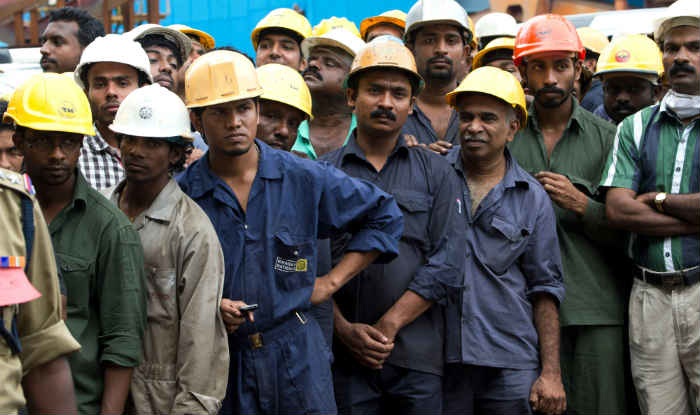TLI Staff
New Delhi: Fearing criticism for junking labour laws on world stage, Centre seems to have developed cold feet weeks after it tacitly supported Uttar Pradesh government’s decision to suspend most labour laws in the state.
Niti Aayog Vice Chief Rajiv Kumar has said that labour law reforms do not mean junking of all labour laws but only after damage has been done to the image of India as a country which protects its workers.
It has now emerged that International Labour Organization (ILO) had taken up the issue with Prime Minister Narendra Modi soon after BJP-ruled states declared to suspend most labour laws.
Many labour unions including RSS-affiliated Bharatiya Mazdoor Sangh (BMS) had lodged complaint with ILO for various states undermining the international conventions to which India has been a signatory.
“Please allow me to assure you that the ILO Director General has immediately intervened expressing his deep concern at these recent events and appealing to the Prime Minister to send a clear message to Central and State governments to uphold the country’s international commitments and encourage engagement in effective social dialogue,” Karen Curtis, Chief, Freedom of Association Branch, International labour Standards Department of the ILO has written to Indian labour unions in response to their request for intervention in the issue.
Earlier this month, Uttar Pradesh government left many shocked with its announcement that most labour laws barring four only would be put in abeyance for three years. The state cabinet chaired by Chief Minister Yogi Adityanath approved a proposal to bring ordinance to make the decision effective.
Other states which also eased the labour laws in the middle of Coronavirus pandemic included Madhya Pradesh and Gujarat.
With suspension of most labour laws, almost a dozen of workers’ rights including the right to form union and claim retirement benefits became nullified. Most industry bodies welcomed the government decision even as an unprecedented migrant crisis pointed to precarity of Indian labourers.
While Indian industries led by various chambers such as CII and Ficci have pressed for labour law reforms, most manufacturers in private accept that labour laws are not a big issue. They highlight local level corruption as major irritant which impedes growth and investment.
Labour unions have claimed that most big businesses such as Tata, Birla, Ambani and Adani figure among top billionaires in the world and have multiplied their businesses with all the existing labour laws in place.
“If you go 50 years back the trade union movement was very militant and violent. Even 20 years back before reforms of 1991 came, gradually trade union movement changed to more collective bargaining, discussion, negotiation. Strike and lock-outs have gradually reduced in both public sector and private sector. There could be few incidents here and there,” a labour union leader said.
“Most businesses have grown with all the existing labour laws in place so how can suddenly it become a problem,” he added.
Image courtesy: newsclick.in

